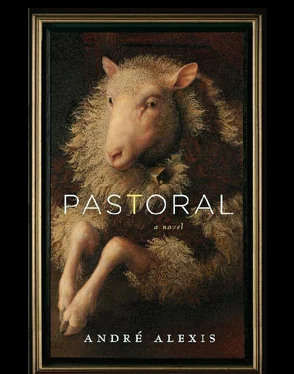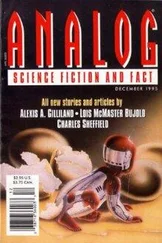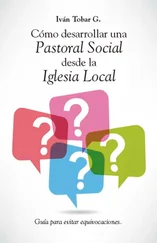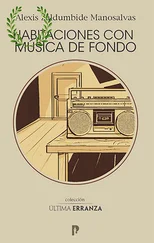His first moments in Barrow were enchanting because they suggested that his hopes were not misplaced. The dun hay that covered the fields like rotting mats, the crocuses, chicory and dandelions, the songs of the birds, the clouds so solid and white it was as if they were being held up from below: everything brought relief and joy. These feelings in turn brought him a kind of grateful curiosity about the town itself and he tried to learn as much as he could about Barrow and the land around it.
Founded in 1904 by an oil baron named Richmond Barrow, the town was, originally, a settlement for those who worked in the oil fields of Lambton County. Over the decades its importance had receded with the oil, but as Barrow was not far from Sarnia it became something of a suburb: near enough by car but still far enough away to maintain its independence and personality.
Along with its history, Barrow also had its mysteries. First among them was its haunted house. Barrow Mansion, the oldest house in town, had been the site of two murders. During the first, Richmond Barrow was stabbed to death by his wife, the former Eleanor Miller of Oil Springs. Years later, Richmond’s son, Clive, was stabbed by his wife, the former Eleanor Burgin of Strathroy. After a century, the two deaths merged in the minds of the town’s inhabitants, some forgetting that two Barrows had been murdered, though there was general agreement that the name ‘Eleanor’ was a bad omen and that the mansion was haunted.
The first sightings of the town’s ghosts came shortly after Barrow Mansion had been turned into a museum, in the 1950s. After that it was easy to find men and women who swore they had seen ‘Mr. Barrow’ wandering the mansion’s corridors. By all accounts, the ghost was as baffled as the townspeople. It sometimes wandered the mansion with (according to witnesses) a knife or a fork or garden shears protruding from its chest. These ghostly apparitions were traumatic for those who experienced them, but they were a boon to the town itself: the mansion attracted the curious and the skeptical, all of whom came from places like Wallaceburg or Timiskaming or even Saskatoon to see the house and its spectral occupants for themselves.
No doubt, Barrow’s reputation for ‘prickliness’ came with its ghosts. The people of Barrow, most of whom were of English stock, were neither gregarious like hard-oilers from Petrolia nor voluble, like the inhabitants of Bright’s Grove. They were quiet, not much given to talking with strangers. They were not unfriendly to those who came to see the mansion, but they were cautious and their caution was taken, by those who’d come to see the ghosts, for ‘attitude.’ And yet the townspeople were capable of great warmth and generosity. On Barrow Day, for instance.
Barrow Day was a celebration of the town’s founding. All visitors were welcome. The day began with masses said in the town’s churches. Then there was a parade, a banquet and, finally, a fête in a gravel pit to mark the end of the festivities. Those who found themselves in Barrow on June 15 were almost inevitably overwhelmed by the generosity, passion and drunkenness of the townspeople. On Barrow Day, when something of Barrow’s ‘earth spirit’ surfaced, the town’s mood belied its reputation for reticence and reserve.
Barrow Mansion and Barrow Day were two of the town’s mysteries. There is a third, but one can’t talk about Barrow without first mentioning an aspect of the town that is less than mysterious but that was, for Father Pennant, just as affecting as ghosts and parades. That is, the physical beauty of the land on which Barrow lay.
Barrow was the quintessence of southern Ontario: low hills, thick scrubby woods, farm fields sprouting corn or grain, grey barns, farmhouses, maples, elms, weeping willows, apple orchards, the dark brown earth, alfalfa for the cows, acres of grazing land for sheep or horses; the smell of it: sweet, acrid, nasty, vegetal; robins, blue jays, scarlet tanagers, cardinals, hummingbirds; thistles, pussy willow, clover, Queen Anne’s lace, dandelions.
The land around Barrow was that aspect of the world one would willingly worship, if one were a pantheist, say, or a pagan, as opposed to a priest.
On his second day in Barrow, Father Pennant rose at five. Lowther had been awake for some time and had prepared a breakfast of apple-cinnamon pancakes with back bacon. He had grated the apple himself and had timed it so that the bacon was hot when Father Pennant sat down, but there was little sign that the kitchen had been used. Everything had been cleaned up by the time Father Pennant ate and, shortly after he finished, it would have been difficult to show he had eaten at all. His dishes had been washed, dried and put away.
The early service was well-attended that morning. There were at least twenty-five people at the low mass, most of whom came to get a look at the new priest.
After the mass, few stayed to talk. Those who did did not stay long. The day and the world called. But Father Pennant had the impression he’d been deemed acceptable. No one had been unfriendly or dubious or overtly critical. He had made a good beginning, surely. But just to be certain, Father Pennant spoke to Lowther, who’d attended.
— How was it?
— It was good, answered Lowther. Your voice doesn’t shake as much as Father Fowler’s.
— That’s not a ringing endorsement, Lowther.
— No, Father, but this was low mass. It’ll be different when you sing.
There were a number of visitors to the rectory that day. It was sunny and warm. You could feel summer approach. Which, perhaps, explains why two women brought mounds of Jell-O in which the preserved remains of the previous summer’s strawberries and raspberries were suspended. Another parishioner brought cherry pie and an angel food cake so airy it clung to Father Pennant’s front teeth as soon as he bit it. There were plans for an official welcome. It was to take place the following Sunday. But those who came to the rectory on Father Pennant’s second day were the ones who could not resist seeing him sooner. Here was the man to whom they would confess the darkest things. It was important to feel him out. Mrs. Young, for instance, after she had watched him eat a piece of her macaroni pie, quietly asked what he thought of adultery.
— It’s a sin, answered Father Pennant.
— Yes, but I wonder where it is on the scale of things. Is it worse than murder?
— No, said Father Pennant, but all our sins are interconnected. One is the road to another.
— I never thought of it that way, said Mrs. Young. I’ll be sure to tell that husband of mine what you said.
Then, looking at him meaningfully, she asked
— Did you like the macaroni pie? It’s my mother’s recipe.
The morning was busy and then, following the afternoon mass, there were even more people to meet, more food to sample: a pear cake, a honey and plum cobbler, an apple crumble. In a matter of hours, Father Pennant had a strong sense of his parish. It was as normal as could be. And here again, he felt fortunate. It would be a pleasure getting to know those who’d been too shy or too busy to approach him early on.
The day’s only sour note came from an old woman named Tomasine Humble. Her hands constricted by arthritis, her thin body like a knotty stick under a thick yellow dress, her white hair held stiffly in place by hairspray, she was not in a good mood, or perhaps she was in the best mood her ailments permitted. When someone asked if Father Pennant had enjoyed a piece of cake, he’d answered
— Yes, very much.
But Tomasine had muttered
— Not on your life.
and smiled when he looked at her inquisitively.
When someone else mentioned the good weather they’d been having, Father Pennant answered that he was looking forward to exploring the countryside in spring, to watching the gardens bloom. Tomasine Humble then said
Читать дальше












